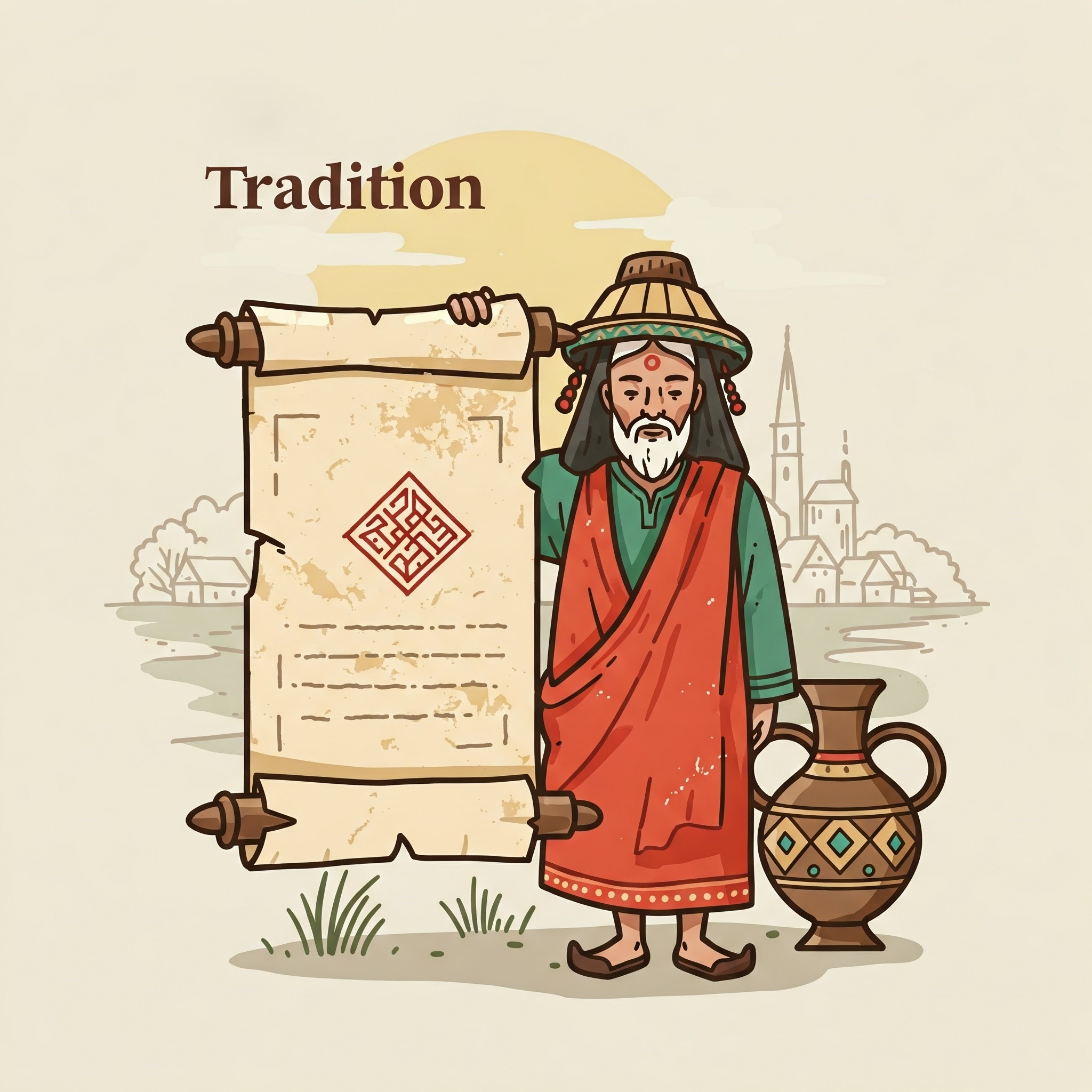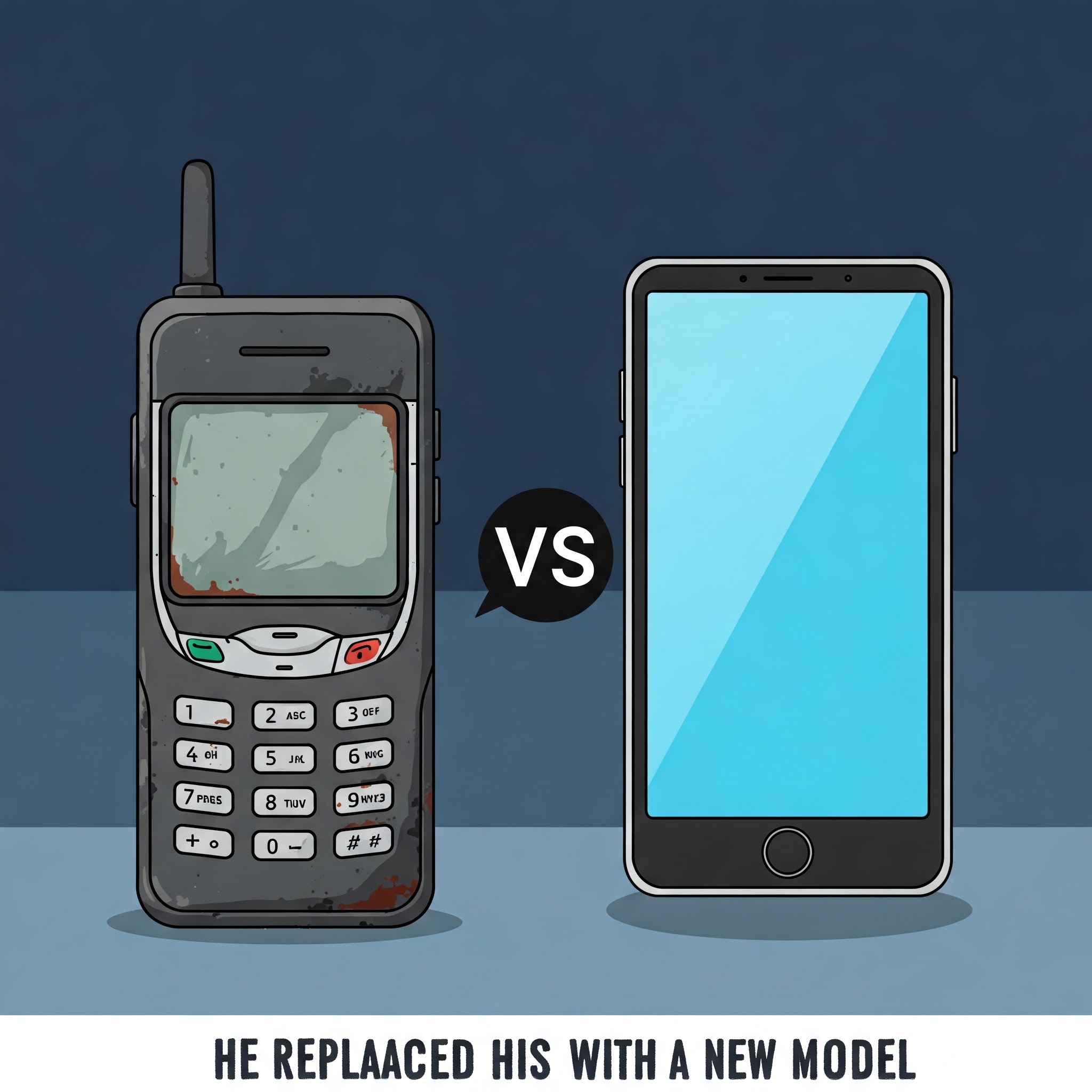Old
Definition
Old is an adjective that describes something that has existed for a long time, is advanced in age, or is no longer new or current. It can also refer to something that has been familiar or established for a significant duration.
Parts of Speech
- Adjective
Pronunciation
American English
- IPA Pronunciation: /oʊld/
- Respelling: OHLD
British English
- IPA Pronunciation: /əʊld/
- Respelling: OHLD
Etymology
The word "old" originates from Old English "eald," derived from Proto-Germanic "*aldaz," meaning "grown-up" or "aged." Its root traces back to Proto-Indo-European "*al-" or "*el-," signifying "to grow" or "to nourish."
Derivatives
- Older (adjective, comparative)
- Oldest (adjective, superlative)
- Oldness (noun)
- Old-time (adjective)
- Old-fashioned (adjective)
Synonyms
- Aged
- Ancient
- Antique
Antonyms
- Young
- New
- Fresh
Usage
The term "old" is used in various contexts. For example: "The building is centuries old," or "He is an old friend of mine." It can describe age, familiarity, or a lack of novelty.
Related Terms
- Age: The length of time something has existed.
- Antique: An object of considerable age, often of historical value.
- Veteran: Someone experienced in a particular field, often due to age or duration.
Detailed Definitions
Adjective
- Having existed for a long time: Refers to something that has persisted for a significant duration.
- Example: "This is an old tradition."
- Advanced in age: Describes a person, animal, or living thing that has lived for many years.
- Example: "My grandmother is 90 years old."
- No longer new or current: Refers to something that has been replaced or is out of date.
- Example: "He replaced his old phone with a new model."
- Familiar or longstanding: Indicates something well-known or established over time.
- Example: "He revisited his old school."
old



🇨🇳 Mandarin Chinese
- "老" (Lǎo) - old, as in age
- Pronunciation: /laʊ̯/
- Respelling: "lao"
- "旧" (Jiù) - old, as in used or not new
- Pronunciation: /t͡ɕjoʊ̯/
- Respelling: "jyoh"
🇮🇳 Hindi
- "बूढ़ा" (Būṛhā) - old, as in age
- Pronunciation: /buːɽʱaː/
- Respelling: "boorha"
- "पुराना" (Purānā) - old, as in used or not new
- Pronunciation: /pʊɾaːnaː/
- Respelling: "puraana"
🇪🇸 Spanish
- "Viejo" - old, as in age
- Pronunciation: /ˈbje.xo/
- Respelling: "bye-ho"
- "Antiguo" - old, as in used or not new
- Pronunciation: /anˈti.ɣwo/
- Respelling: "an-tee-gwo"
🇫🇷 French
- "Vieux" - old, as in age
- Pronunciation: /vjø/
- Respelling: "vyeuh"
- "Ancien" - old, as in used or not new
- Pronunciation: /ɑ̃.sjɛ̃/
- Respelling: "ahn-syan"
🇸🇦 Arabic (Modern Standard)
- "عجوز" ('Ajūz) - old, as in age
- Pronunciation: /ʕaʤuːz/
- Respelling: "'ajooz"
- "قديم" (Qadīm) - old, as in used or not new
- Pronunciation: /qaːdiːm/
- Respelling: "qa-deem"
🇧🇩 Bengali
- "বৃদ্ধ" (Bṛddha) - old, as in age
- Pronunciation: /bɹ̩dːʱɔ/
- Respelling: "briddho"
- "পুরনো" (Purano) - old, as in used or not new
- Pronunciation: /purono/
- Respelling: "purono"
🇷🇺 Russian
- "Старый" (Staryy) - old, as in age
- Pronunciation: /ˈstarɨj/
- Respelling: "stah-ree"
- "Старинный" (Starinnyy) - old, as in used or not new
- Pronunciation: /stɐˈrʲinːɨj/
- Respelling: "sta-reen-ny"
🇵🇹 Portuguese
- "Velho" - old, as in age
- Pronunciation: /ˈvɛʎu/
- Respelling: "vel-yo"
- "Antigo" - old, as in used or not new
- Pronunciation: /ɐ̃ˈtiɡu/
- Respelling: "ahn-tee-goo"
🇮🇩 Indonesian
- "Tua" - old, as in age
- Pronunciation: /tua/
- Respelling: "too-ah"
- "Lama" - old, as in used or not new
- Pronunciation: /lama/
- Respelling: "lah-mah"
🇩🇪 German
- "Alt" - old, as in age
- Pronunciation: /alt/
- Respelling: "ahlt"
- "Alte" - old, as in used or not new
- Pronunciation: /ˈʔaltə/
- Respelling: "'ahl-tuh"
🇯🇵 Japanese
- "老いた" (Oita) - old, as in age
- Pronunciation: /oi̯ta/
- Respelling: "oi-ta"
- "古い" (Furui) - old, as in used or not new
- Pronunciation: /ɸɯ̟ᵝɾɯ̟ᵝi/
- Respelling: "fu-rui"
🇻🇳 Vietnamese
- "Già" - old, as in age
- Pronunciation: /zaː˧˥/
- Respelling: "za"
- "Cũ" - old, as in used or not new
- Pronunciation: /kɨ˧/
- Respelling: "koo"
🇰🇷 Korean
- "늙은" (Neulgeun) - old, as in age
- Pronunciation: /nʌlɡɯn/
- Respelling: "neul-geun"
- "오래된" (Oraedoen) - old, as in used or not new
- Pronunciation: /oɾɛd͡ʑʌn/
- Respelling: "o-rae-dwen"
🇹🇷 Turkish
- "Yaşlı" - old, as in age
- Pronunciation: /jaʃɫɯ/
- Respelling: "yash-lee"
- "Eski" - old, as in used or not new
- Pronunciation: /ˈeskʲi/
- Respelling: "es-kee"
🇵🇰 Urdu
- "بوڑھا" (Būṛhā) - old, as in age
- Pronunciation: /buːɽʱaː/
- Respelling: "boorha"
- "پرانا" (Purānā) - old, as in used or not new
- Pronunciation: /pʊɾaːnaː/
- Respelling: "puraana"





